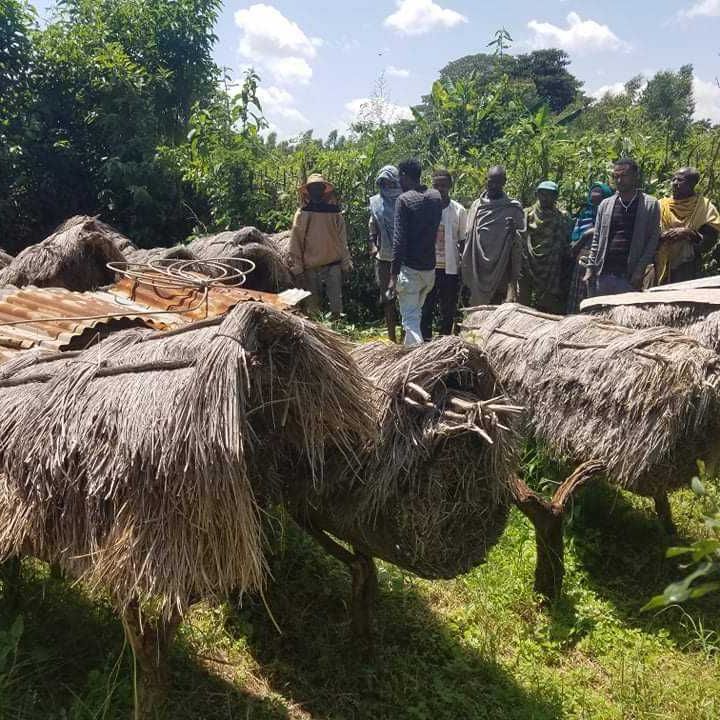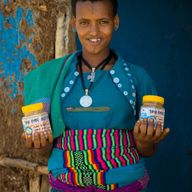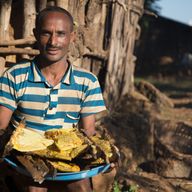
As part of our Hives for Lives programme that protect bees and beekeepers around the world, we value our partnership with Bees For Development, a registered charity that plays a crucial role in fighting chronic poverty through beekeeping in Ethiopia.
Janet Lowore, Programme Manager at Bees For Development, gives us an update on our achievements so far, since starting working together in 2019.
Good news from Ethiopia
Listening to the news can be so depressing sometimes – we hear about war, climate change, floods, fires and loss of species! It is therefore all the more uplifting when we have the chance to hear good news stories – especially those which are least expected. I’d like to tell you a good news story from Ethiopia – a country perhaps better known for famine and civil unrest. I work for Bees for Development, the charity which makes life better with bees. When we say ‘life’ – we mean all life – people’s lives, wildlife and the natural world – and in northern Ethiopia, Rowse Honey is helping us to make life better.
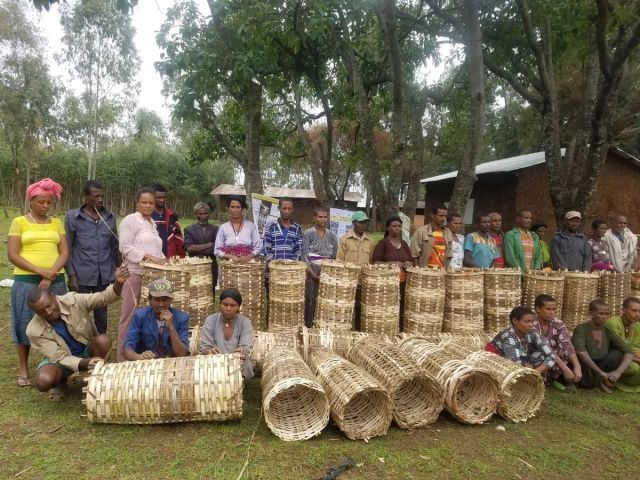
People’s lives are made better with bees
With relatively little labour and money people living even in the most difficult situations can keep a few bee colonies and sell honey. Whilst beekeeping in the UK might be seen as a hobby, in Ethiopia, it is a lifeline. Provided people have the right skills, knowledge and support almost anyone can set up a small apiary and earn much-needed income. People make their own hives so the income they get from selling honey is almost all profit – this is very different to the way we do beekeeping in the UK, where many of us hobby beekeepers – including myself – easily spend more money on inputs, than we earn in honey sales.
“Beekeeping is a good business because I invest little and earn a lot. My neighbours are copying what I have learned."
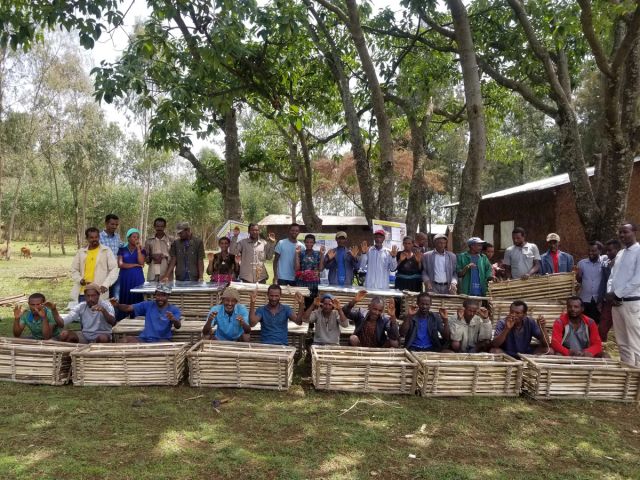
Together, we've helped220families to start beekeeping
Selling honey contributes up to40%of people's annual income
The natural world is better with bees
We are all increasingly aware that bees play an essential role in pollination – we now understand that one third of our food depends on bee pollination. Yet these pollination services don’t just benefit humans! They also ensure there are fruits for wildlife and seeds for plants to regenerate. In northern Ethiopia, with Rowse Honey’s help, we are working with two communities in the villages of Ysala and Alehuay near Lake Tana Biosphere Reserve to help reverse decades of deforestation and land degradation. Bees help this process in several ways. They pollinate the seeds of shrubs, flowers and trees so ensuring these plants can regenerate naturally. Not only that – but beekeeping provides an immediate tangible reward for the local community who are planting trees. The long-lived trees provide nectar and pollen for bees, which in turn put money in people’s pockets – a financial reward for people investing in nature.
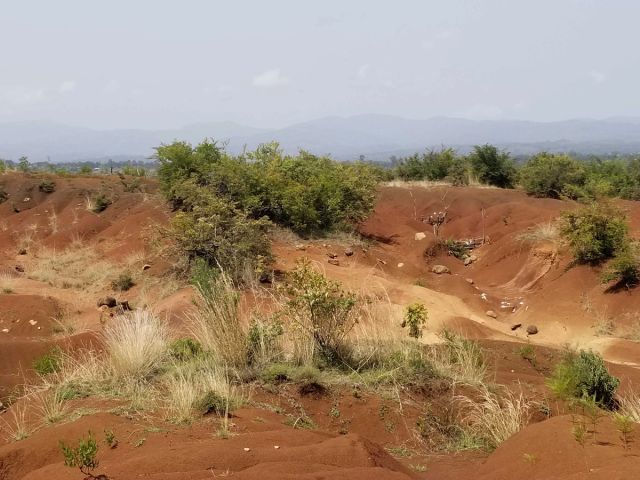
Community commitment in hard times
In 2021, Ethiopia experienced serious civil unrest in the north of the country, in Tigray and in Amhara, near where we are working. Amazingly whilst the BBC news was telling about imminent civil war in Ethiopia the people in Alehuay were focussing their effort on nature conservation and celebrating their own reforestation achievements. In September 2021, the 13-strong reforestation committee were so proud of their own re-greening work that they held a party! They invited the team from Bees for Development Ethiopia to come and see for themselves how well the trees were growing and how wildflowers were returning to the protected site.
Bees are proving to be a powerful incentive for people living in extreme hardship to rally round and stand up for nature. Surely this is an amazing, good news story to surprise and inspire us all!
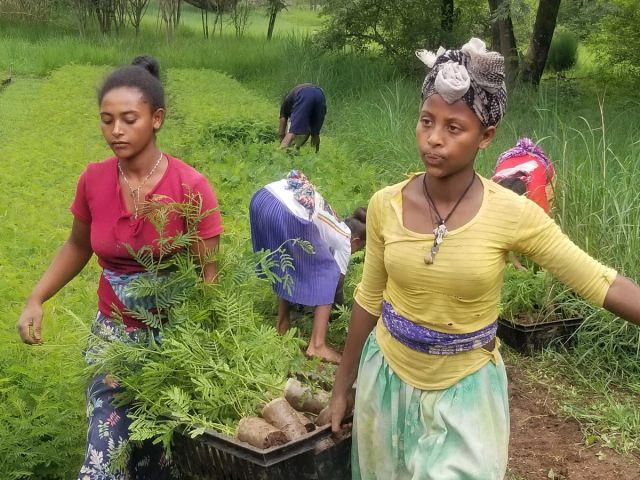
Together, we've planted148,000trees in Ethiopia since 2019
We've introduced10different tree species
